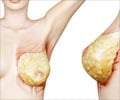After France recommended that 30,000 women with implants from troubled French firm PIP have them removed, South American health authorities are mulling over future action.

The implants are particularly widespread in Venezuela, Brazil, Colombia and Argentina across different economic levels, with many young girls eager to augment their bust size before they become adults.
Brazil's National Health Surveillance Agency (ANVISA) said through a spokesman that it "has not yet made a recommendation," echoing the sentiments of health professionals and officials in other Latin American countries.
They stressed that France's health ministry, in recommending women to take out the implants because they could rupture dangerously, had acknowledged that there is no proven cancer risk.
Breast implants produced by the now-bankrupt Poly Implant Prothese were banned in Brazil in April 2010 when problems were first reported, but 25,000 implants had already been performed in the country, according to ANVISA. Around 100,000 women get silicone breast implants in Brazil each year.
PIP was shut down and its products banned last year after it was revealed to have been using non-authorized silicone gel that caused abnormally high rupture rates in its implants.
Advertisement
"The medical facts that we know suggest that these implants can rupture earlier and with a greater risk of inflammatory reaction," said Brazilian Society of Plastic Surgery president Jose Horacio Aboudib.
Advertisement
Venezuela's union of plastic surgeons agreed, declining to recommend that women with the PIP implants get them removed, recommending preventative checkups instead.
The Health Ministry has not yet provided an official recommendation.
Union of plastic surgeons president Marisol Graterol said the country had taken steps since 2010 to ban imports and marketing of the products. Around 80 percent of implants in Venezuela come from different French brands.
Venezuela, where about 40,000 breast augmentations are performed each year and plastic surgery is widespread, has been a regular top contender for Miss Universe.
Surgeon Juan Jorge Blanco noted that breast augmentations used to be prohibitively expensive but that costs have since dropped to $3,000-7,000.
"Women from all social backgrounds now get operations," he said.
Argentina's ANMAT drugs authority urged 15,000 women who received implants to "consult" their doctors.
In Colombia, implants are sometimes offered as birthday gifts, especially for "quinceaneras" -- girls' 15-year-old birthdays -- that mark a girl's passage into young womanhood.
"Drug traffickers also offer the surgery as a gift to their girlfriends," said surgeon Celio Bohorquez, spokesman of the Colombian Society of Plastic Surgery.
Source-AFP












